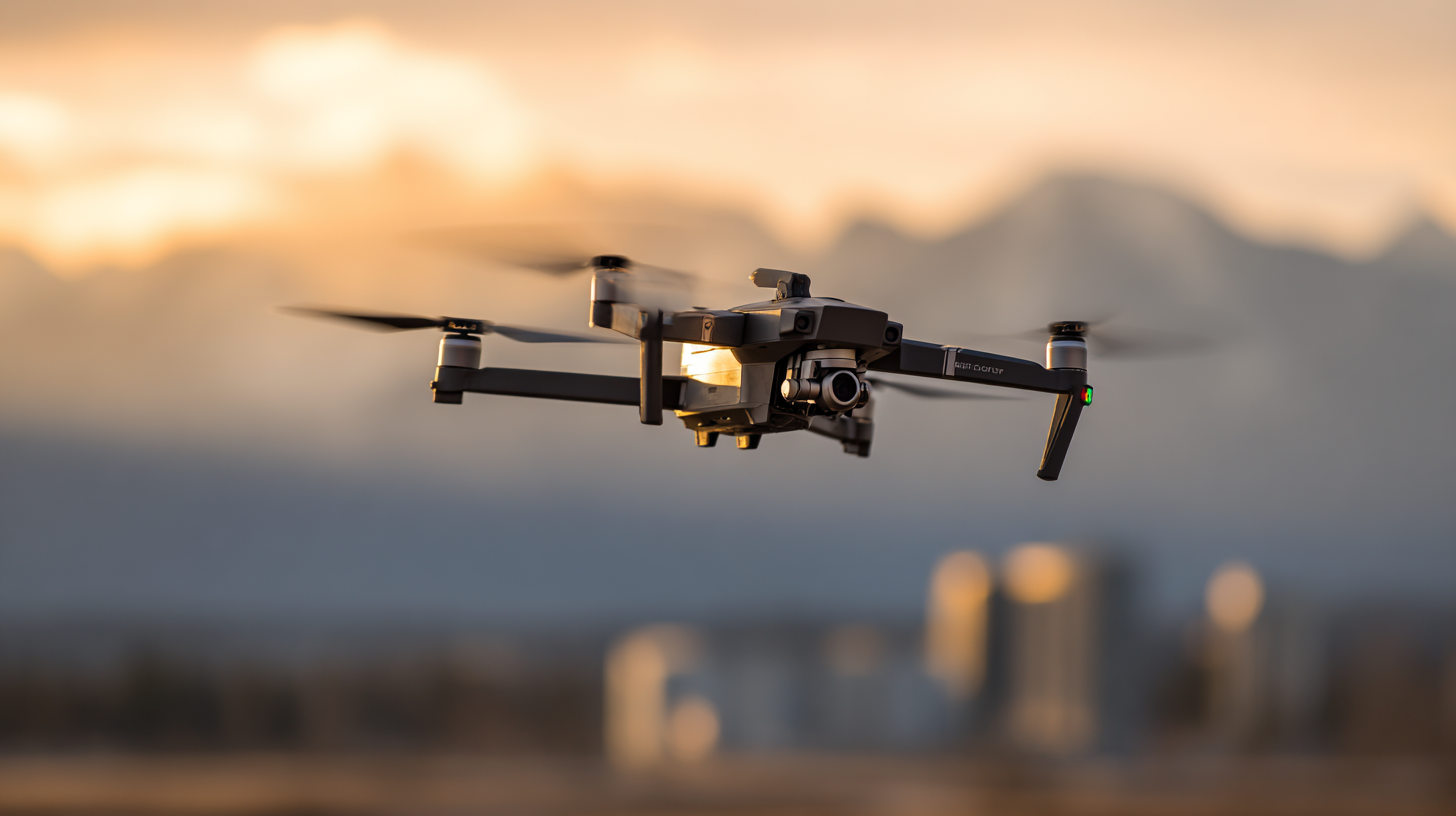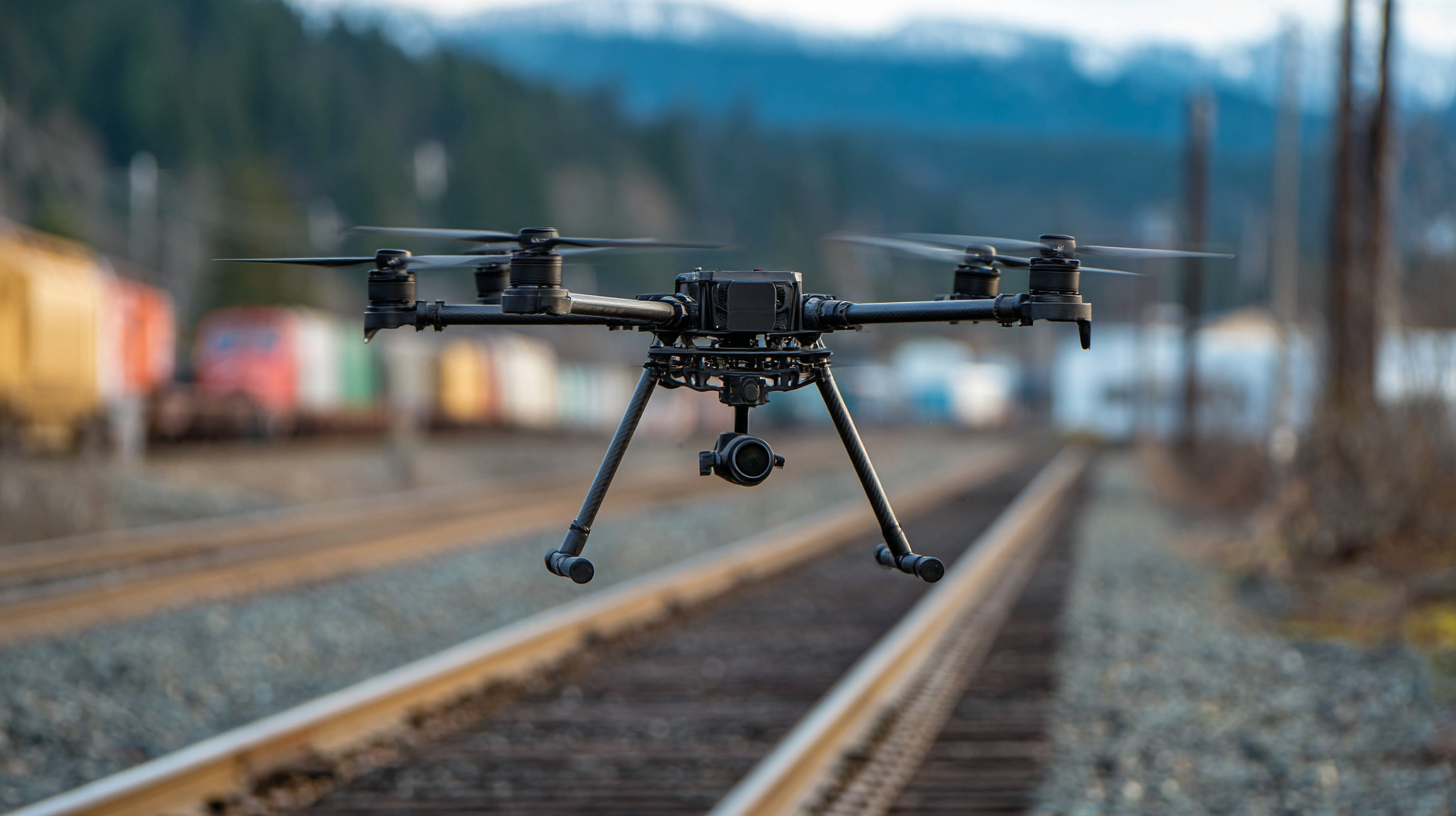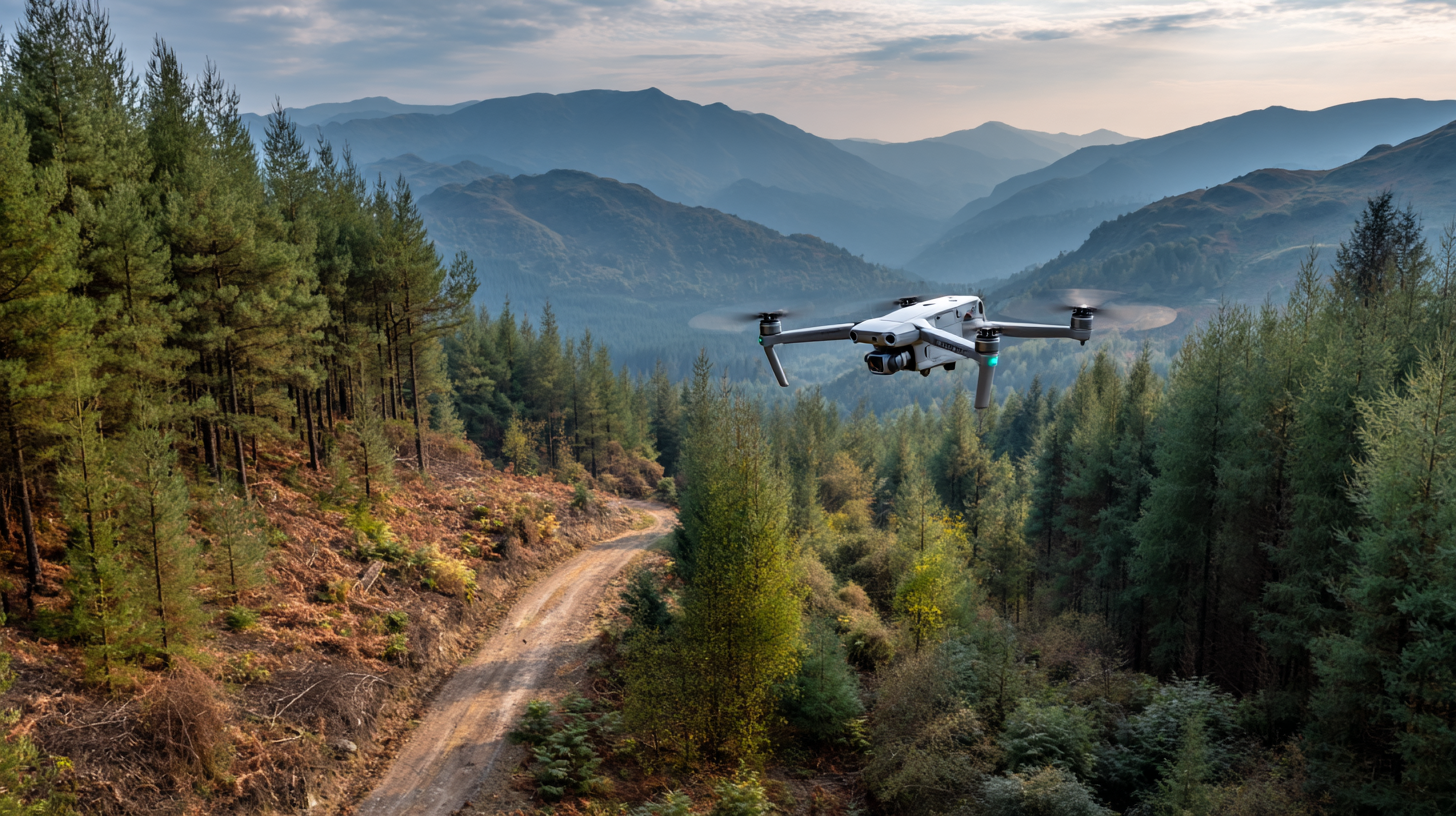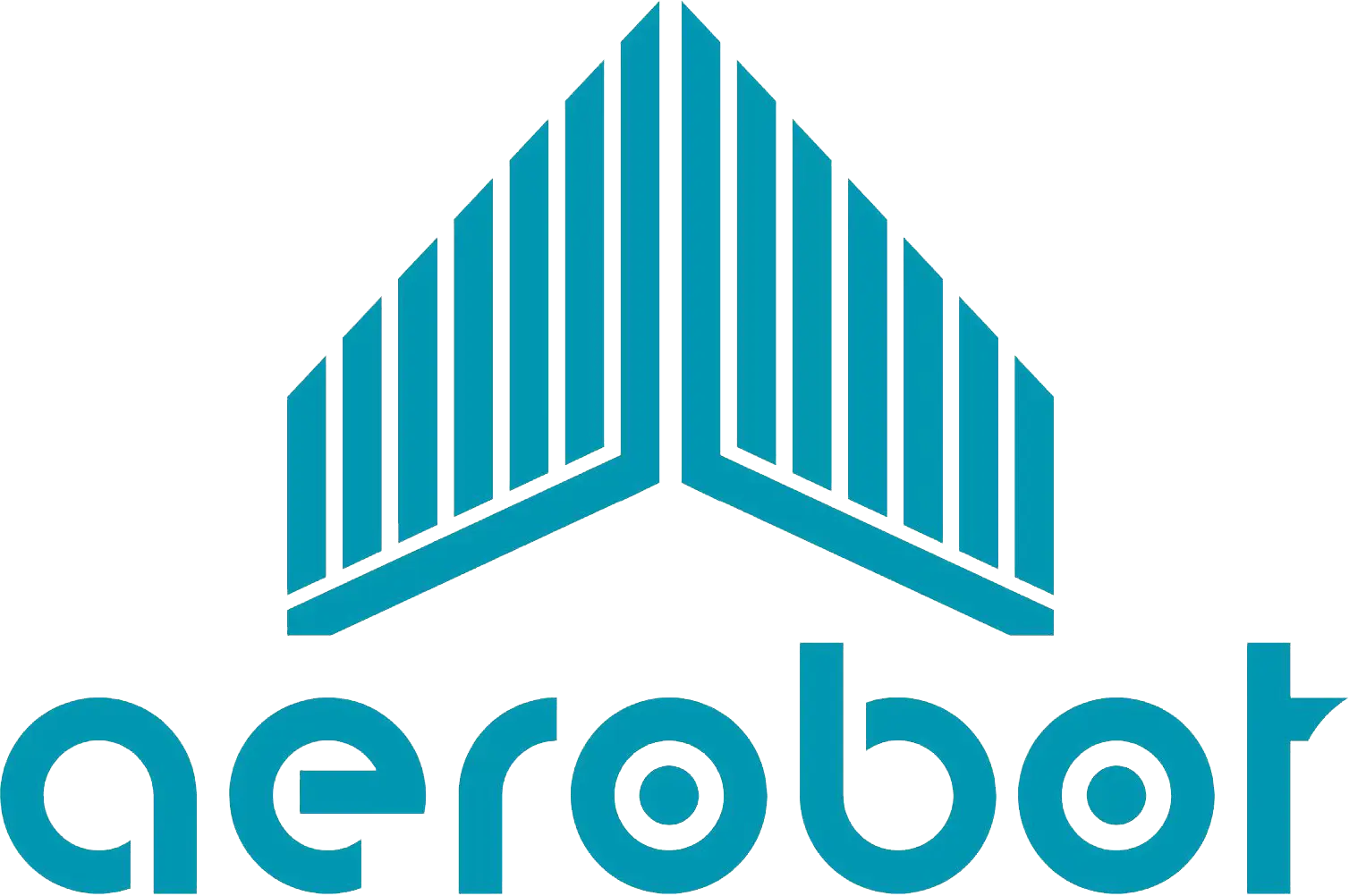Leave Your Message
In recent years, the use of Drone UAV technology has surged across various industries, revolutionizing the way businesses operate. According to a report by the Association for Unmanned Vehicle Systems International (AUVSI), the economic impact of drones is expected to reach $82 billion by 2025, with applications ranging from agriculture and construction to emergency services and logistics. As organizations increasingly recognize the potential of Drone UAVs to enhance operational efficiency, reduce costs, and improve data collection, choosing the right model becomes critical. This ultimate guide aims to provide businesses with essential insights on selecting the most suitable Drone UAV tailored to their specific needs, ensuring they maximize the benefits that this cutting-edge technology offers.

When selecting a drone for business applications, it's essential to understand the different types and their corresponding uses. Drones can be categorized based on their payload sensors, such as Electro-Optical/Infrared sensors, Radar sensors, and Signals Intelligence. Each sensor type serves unique purposes; for instance, Electro-Optical/Infrared sensors are crucial for aerial photography and surveillance, while Radar sensors excel in mapping and environmental monitoring. Knowing which sensor aligns with your business requirements can enhance operational efficiency significantly.
**Tips:** Before making a purchase, assess your business's specific needs. Consider factors like the type of environment you’ll operate in and the necessary data you need to collect. Additionally, evaluate the drone's payload capacity, range, and endurance, as these attributes can dramatically influence performance.
As we move forward towards 2025 and 2026, some key business trends in the drone market are expected to include increased automation and enhanced data analytics capabilities. This trend suggests that businesses should also be looking for drones capable of integrating with IoT technologies and providing real-time data analysis to stay ahead in a competitive landscape.

When selecting a drone UAV for your business needs, it is essential to consider key features that can significantly impact efficiency and effectiveness. The global drone services market is projected to expand from a valuation of approximately $241.2 billion in 2024 to an astounding $2.138 trillion by 2032, highlighting the increasing adoption of UAV technology across various sectors. Factors such as payload capacity, battery life, and sensor capabilities should influence your choice, depending on specific operational requirements.
Tip: Always assess the regulatory environment related to drone operations in your location. Compliance with local aviation regulations is crucial to avoid legal issues and ensure safe operations.
Furthermore, understanding the type of drone technology available - such as mechanical gyroscopes, ring laser gyroscopes, and MEMS - can aid in picking the right model. For instance, businesses engaged in aerial surveys or mapping often benefit from drones equipped with advanced optical sensors and high-precision navigation aids. With the small drone market projected to grow to $16.9 billion by 2030, there is a wealth of options available, but choosing the right technology tailored to your business’s needs is vital for maximizing return on investment.
Tip: Consider conducting a pilot test with different drone models to evaluate their performance in real-world scenarios before making a significant investment.

When evaluating the right drone UAV for your business needs, striking a balance between budget and capabilities is crucial. Businesses often face the challenge of choosing a drone that not only fits their financial constraints but also meets the operational requirements of their specific tasks. This evaluation begins with a clear understanding of the intended use of the drone—whether for aerial photography, surveying, or inspecting infrastructure. Each application demands different features such as camera quality, flight time, and range, which can significantly affect the overall cost.
Once the intended use is defined, it is important to compare the features of different models within your budget. Drones come in various price ranges, but spending a little more on a model with enhanced capabilities can yield better results in the long run. For instance, investing in a drone with advanced sensors may increase the initial cost but could save time and resources by providing more accurate data for your projects. Therefore, it is essential to weigh the immediate costs against the long-term benefits, ensuring that your investment aligns with both current and future business goals.
When selecting the right drone UAV for your business, understanding regulatory compliance is paramount. Each country has specific laws governing the use of drones, which can significantly impact your operations. For instance, in the United States, the Federal Aviation Administration (FAA) requires commercial drone operators to obtain a Remote Pilot Certificate and adhere to rules such as flying below 400 feet and avoiding restricted airspace. Before making a purchase, it is crucial to familiarize yourself with these regulations and ensure the drone you choose complies with them.
Additionally, it's important to consider any industry-specific regulations that may apply to your business. For example, if you're in agriculture, there are guidelines on how drones can be used for crop monitoring or pesticide application. Similarly, businesses involved in infrastructure inspection must comply with local laws regarding flight permissions and data privacy. By aligning your drone selection with regulatory requirements, you not only safeguard your investment but also promote safe and responsible drone operations that comply with the law.
When selecting a drone for your business, the concept of future-proofing your investment is paramount. The rapid advancement in drone technology means that today's cutting-edge UAV may quickly become outdated. To mitigate this risk, focus on drones that support modular upgrades. These models allow for the integration of new camera systems, sensors, or software capabilities as they become available, ensuring that your investment remains relevant for years to come.
Additionally, consider the manufacturer's commitment to ongoing support and development. A reputable brand that offers regular updates and maintenance can significantly enhance the longevity of your drone. Look for platforms that not only provide robust customer service but also foster a community of developers who contribute to valuable add-ons. By investing in such a flexible and resilient system, you can adapt to changing business needs and industry advancements, maximizing your return on investment while staying ahead of the competition.
